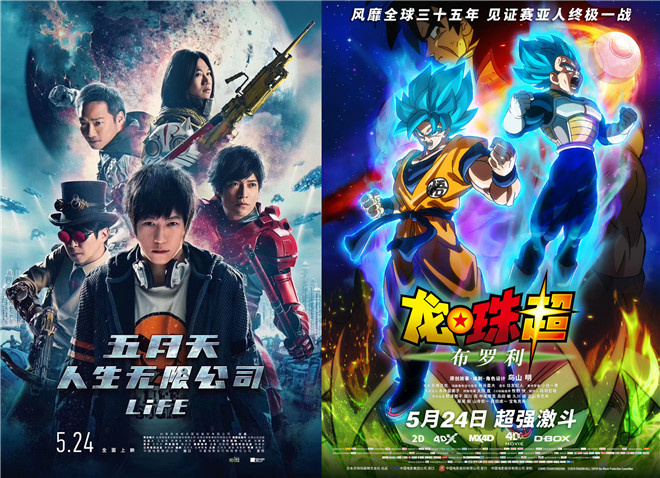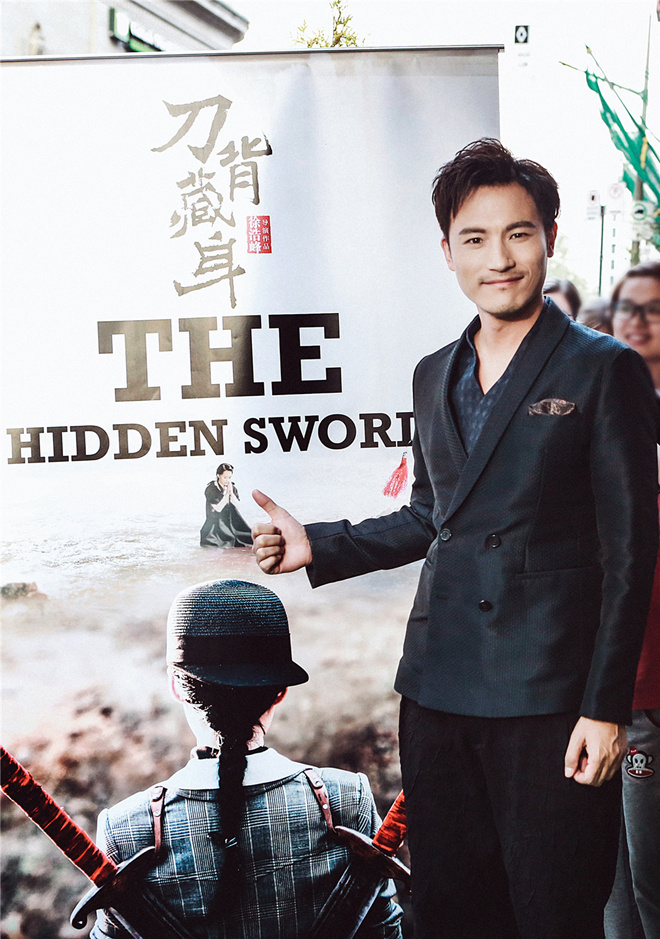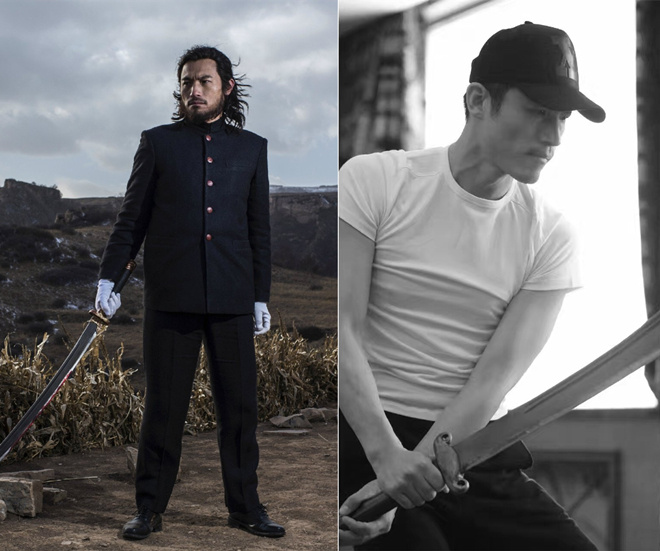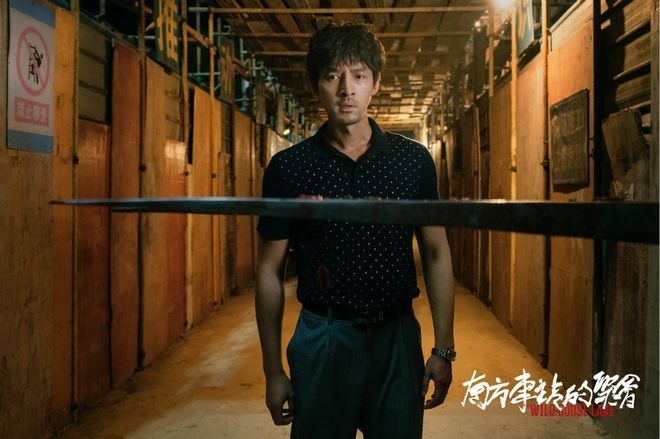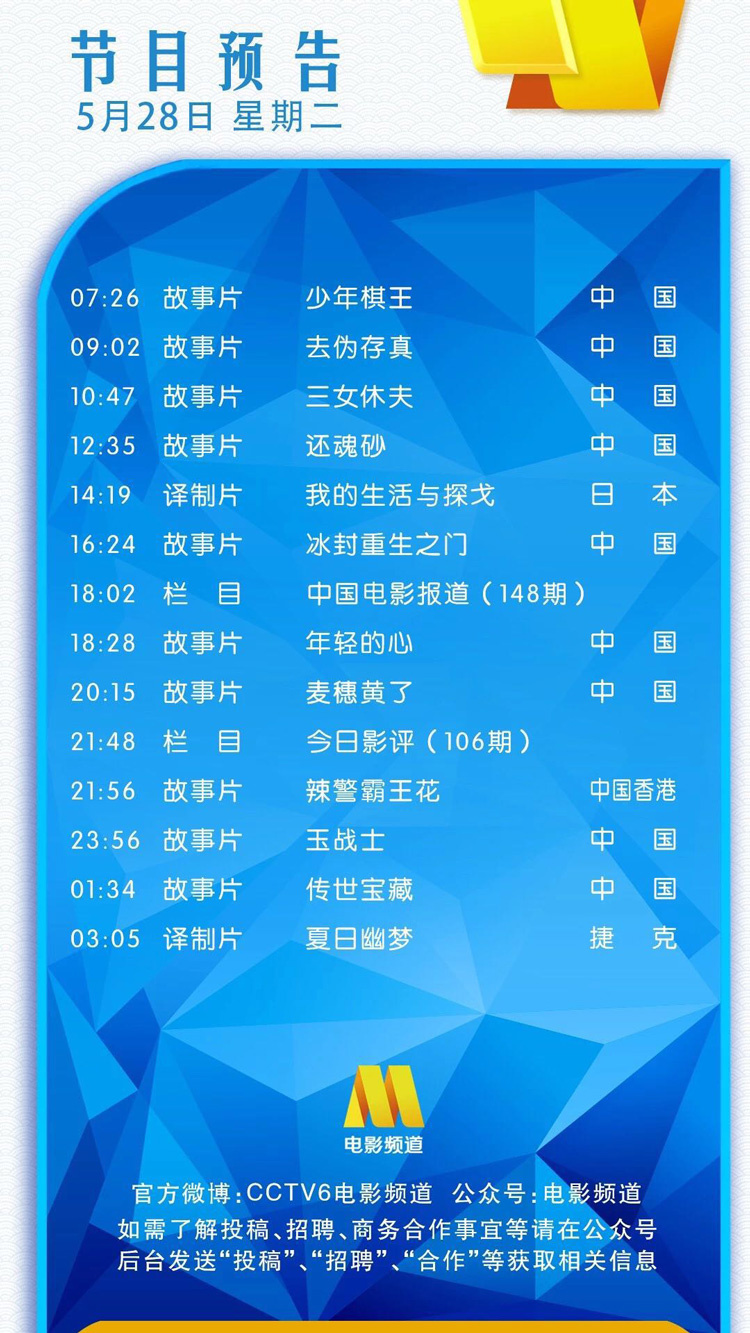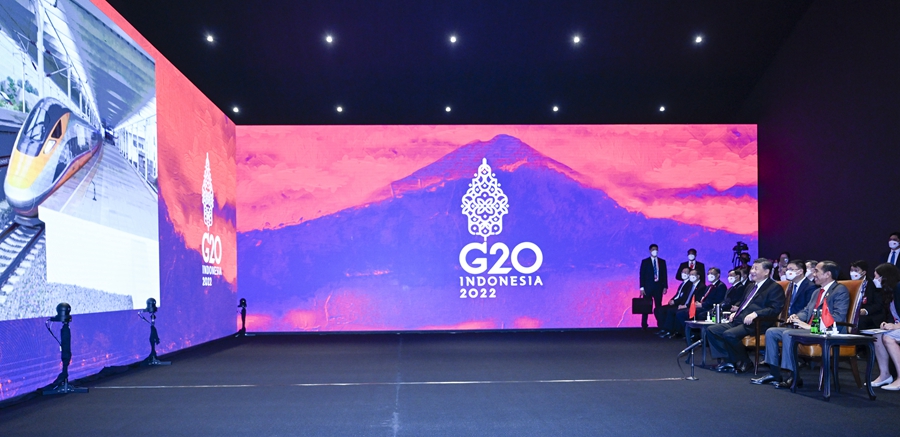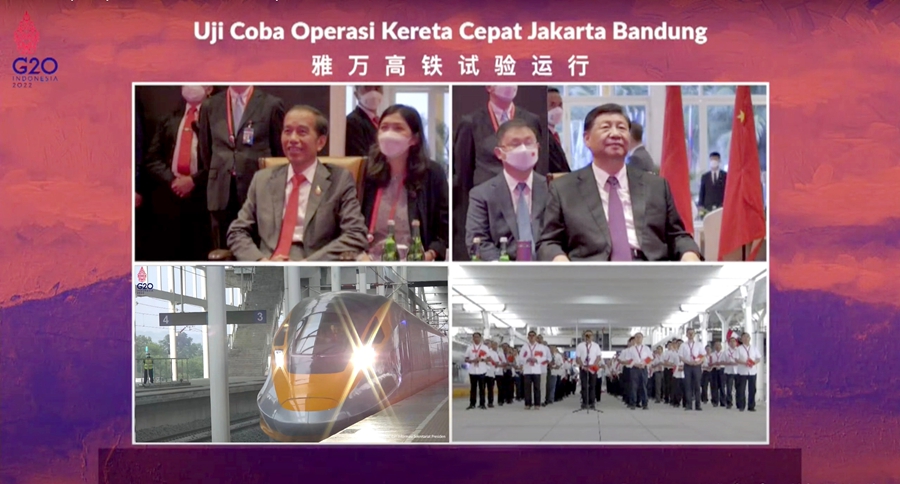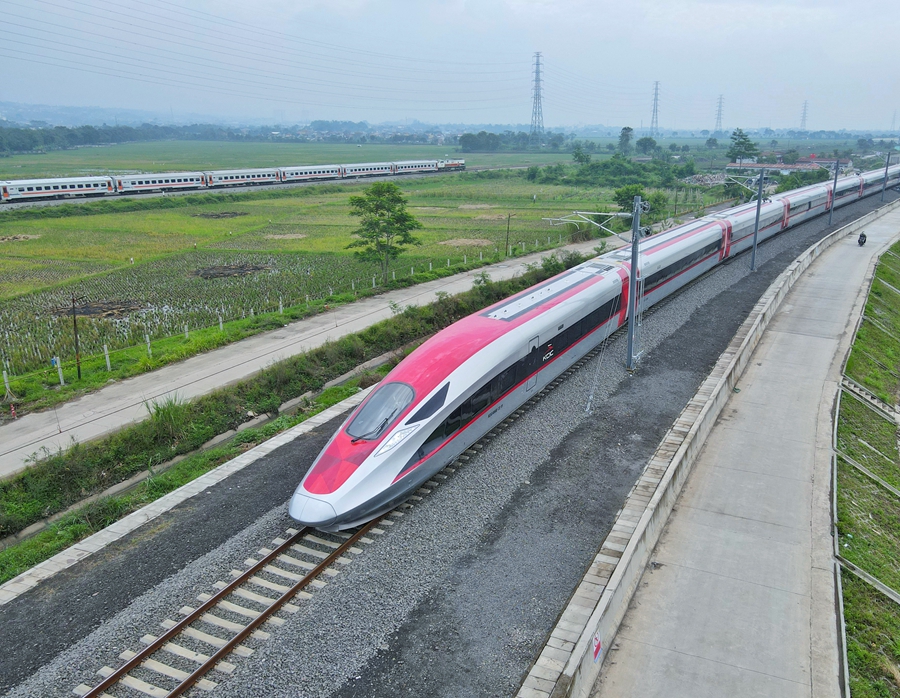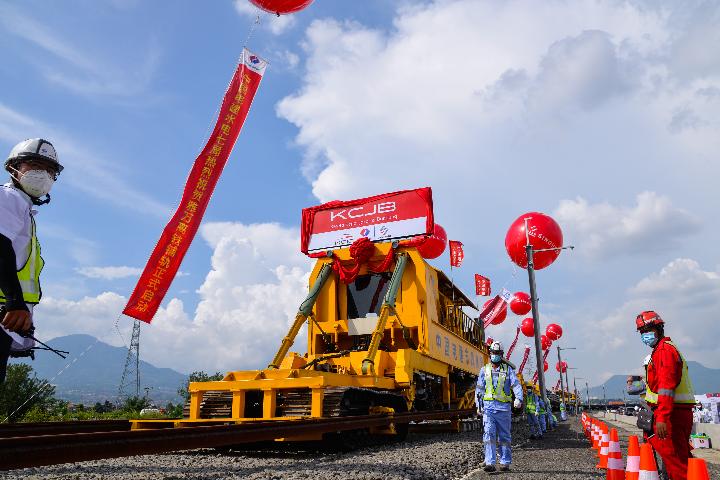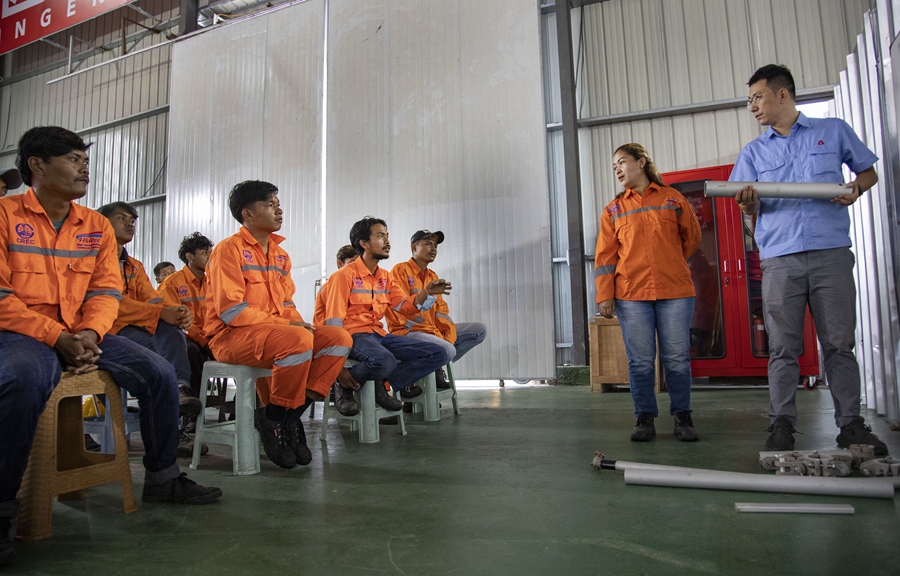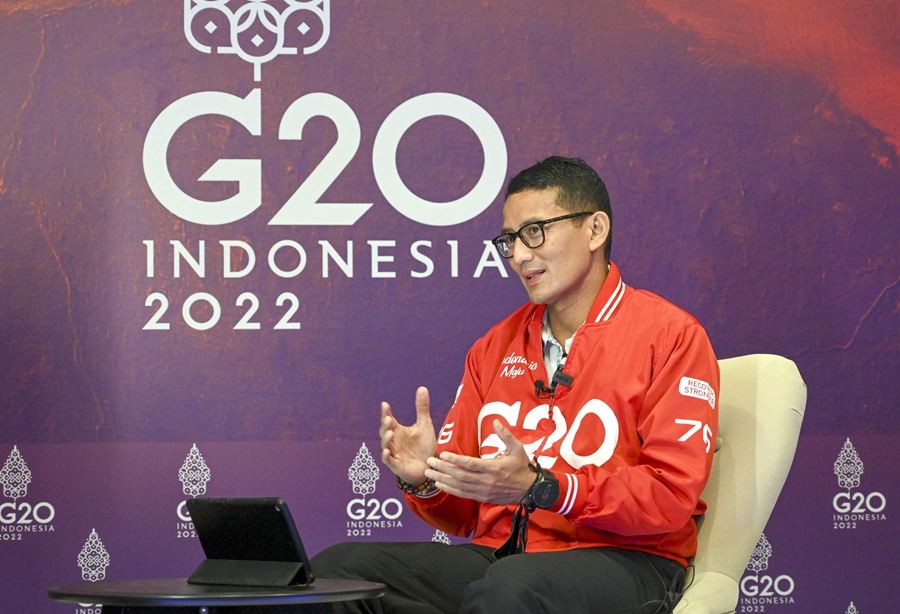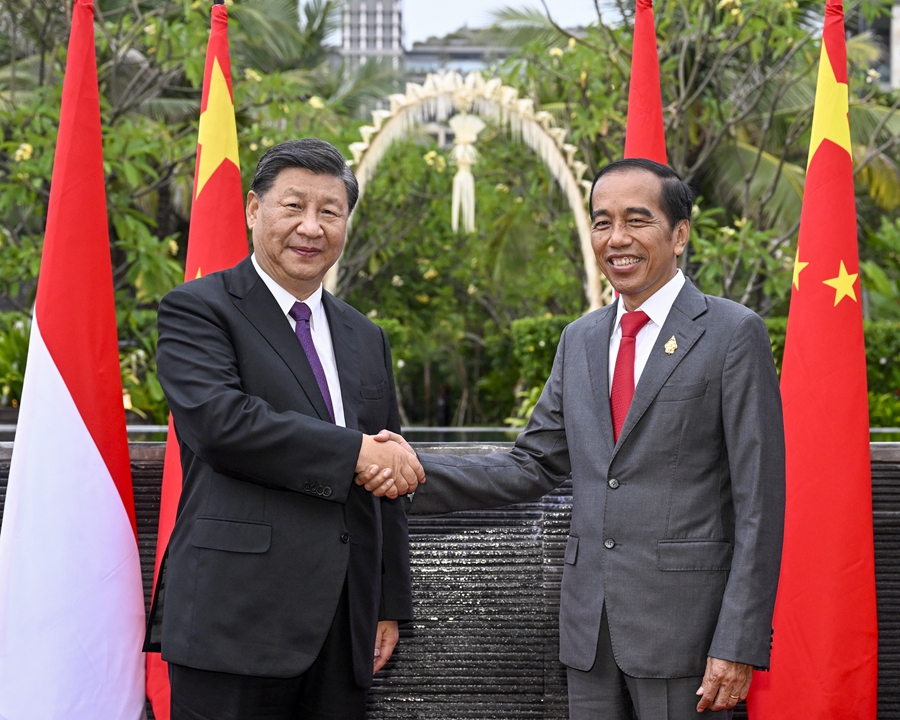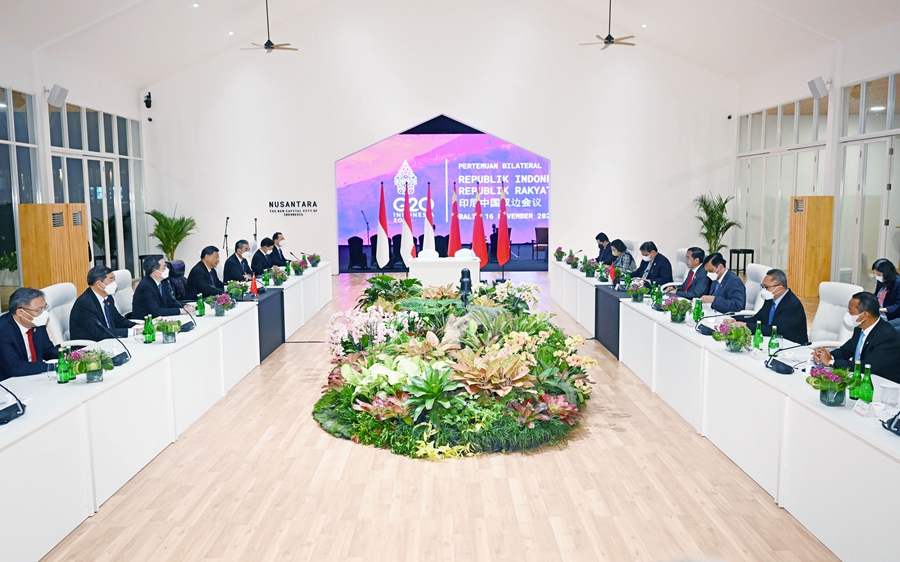Abstract: The modernization of education in China has always been a major strategic issue and strategic choice for the country’s development. The cognition and judgment of leaders in different periods on the reality of education have an important impact on the modernization of education. China’s educational modernization process has both successful experiences and mistakes. As far as Deng Xiaoping is concerned, he has made two important decisions on the enrollment method of colleges and universities. The first time was on June 13, 1966, according to the instructions of Mao Zedong, he made a decision with Liu Shaoqi to postpone the enrollment of colleges and universities and reform the enrollment examination method of colleges and universities. The second time was in September, 1977, when Deng Xiaoping pushed through the crowd and proposed to restore the higher education examination system, which was approved by the Political Bureau of the Communist Party of China (CPC) Central Committee. The second decision not only produced a long-term human capital dividend, but also profoundly affected the process of educational modernization in China, laying the foundation for a modern educational system.
China is a country with the largest population in the world, but also a country lacking in human capital. From the perspective of national modernization, more population has become a heavy burden of economic development, and less human capital has become an important constraint of economic development. In this sense, a large population is not necessarily a good thing, unless the population burden is transformed into human resources wealth. [1] Therefore, China should take human capital as the first capital, human resources as the first resource, and invest in people and develop human resources as its basic national policy. China’s modernization is essentially human modernization, and human modernization is essentially the continuous expansion and accumulation of human resources or human capital stock, which has become an increasingly important source of economic development and constitutes the ultimate foundation of national wealth (material wealth, social wealth, cultural wealth and ecological wealth). [1] (P.174) Leaders’ understanding of China’s basic national conditions directly affects the decision-making of human capital investment and the process of human capital accumulation, which in turn will affect the long-term dividend of human capital to China’s modernization development. From the past decades, China has also experienced a historical process of success first, then twists and turns, and then success, and gradually realized the transformation from a heavy population burden to a powerful country in human resources or human capital in the world. China has become the world’s largest number of students in higher education.
First, from a big country with illiteracy to a big country with modern education
In modern times, China is not only a laggard and latecomer of world modernization, but also a laggard and latecomer of educational modernization. It was not until the beginning of the 20th century that modern education was introduced from the west and a national education system was established. By the time New China was founded in 1949, it had been about half a century. From the perspective of higher education, only 185,000 people in China had college education or above, accounting for 3.42% of the total population? . The number of college students in China is only 117,000. [2] At that time, about 80% of the people in the country were illiterate and semi-illiterate, and the average education period of the population over 15 years old was only 1.0 years, which was a big country full of illiteracy. [3]
After the founding of New China, China began an unprecedented cultural construction, including "implementing universal education in a planned and step-by-step manner, strengthening secondary and higher education, and paying attention to technical education" [4].
By the mid-1960s, a relatively complete modern national education system had been established in China, and the level of human capital had been significantly improved. According to the data of the second national census in 1964, the illiteracy rate dropped to 32.3%, which was half as much as 80% in 1949. The population of junior college or above reached 2.875 million, 15.5 times that of 1949, with an average annual growth rate of 21.6% from 1949 to 1964. The average educational years of the population over 15 years old in China reached 2.6 years, equivalent to 2.6 times that of 1949. During 1949-1964, the average annual growth rate was 7.06%, which was much higher than the average annual growth rate of the total population (2.08%) in the same period. Even though higher education was seriously affected by the Great Leap Forward, the number of students in institutions of higher learning dropped from 962,000 in 1960 to 674,000 in 1965 [2] (P.483), which was still the first golden age for the development of modern education in China.
Although China’s modern national education, especially modern university education, has developed rapidly and achieved remarkable results, the basic national conditions of low level of human capital have not fundamentally changed. Compared with developed countries, in 1965, the average length of education of the population over 15 years old was 10 years in the United States, equivalent to 3.8 times that of China; It is 7.5 years in Japan, which is 2.9 times that of China. In particular, the population above junior college is quite scarce, accounting for only 0.416% of the total population (723 million people) in China. Proceeding from this basic national condition, it is necessary to continuously accelerate the modernization of national education, including the development of modern higher education.
Two, Mao Zedong from the reform of the education system to launch the "cultural revolution"
After 1965, Mao Zedong shifted the focus of "opposing and preventing revisionism" to how to prevent revisionism in the Communist Party of China (CPC), especially in the leading organs of the Party. [5] His judgment on academia and education has also changed. In March 1966, he said at the enlarged meeting in The Politburo Standing Committee (PSC): "Now, most universities, middle schools and primary schools are monopolized by people from the bourgeoisie, petty bourgeoisie and rich land." [6] On May 7 of the same year, he reiterated this view in his letter to Lin Biao. Therefore, Mao Zedong’s proposal to reform the education system is not to change the backward situation of modern education, but to change "the phenomenon of bourgeois intellectuals ruling schools".
In fact, Mao Zedong had put forward the idea of reforming the education system before this. In 1964, Mao Zedong proposed that the education system should be reformed. "You don’t know the class struggle. How can you be a college graduate?" [7] According to Mao Zedong’s instructions, the Central Committee of the Communist Party of China and the State Council issued the Notice on Organizing Liberal Arts Teachers and Students in Colleges and Universities to Participate in the Socialist Education Movement on September 11th of the same year.
Mao Zedong launched the "Cultural Revolution" with the educational front as an important breakthrough. On June 12th, 1966, Mao Zedong presided over the enlarged meeting of the CPC The Politburo Standing Committee (PSC). When talking about the "Cultural Revolution", he said: "First seize power, criticize authority, and then engage in teaching reform and educational system reform. The central government should establish a high school and university entrance examination system by combining school recommendation and selection. " [8] On June 13th, according to Mao Zedong’s instructions and under the auspices of Liu Shaoqi and Deng Xiaoping, the Central Committee of the Communist Party of China and the State Council issued a notice, deciding to reform the entrance examination method for colleges and universities, calling the entrance examination method at that time "basically not jumping out of the bourgeois examination system", and decided to postpone the entrance examination for colleges and universities for half a year in 1966. In fact, it is to suspend classes for half a year for college students nationwide to engage in the "Cultural Revolution" movement.
On June 18th, People’s Daily published the decisions of the Central Committee of the Communist Party of China and the State Council, and published an editorial entitled "Do a good job in the cultural revolution thoroughly and reform the education system thoroughly". The editorial said: "The old entrance examination system has become a stumbling block to the cause of socialist education and the great proletarian cultural revolution." On June 27th, the Ministry of Higher Education issued a notice that the enrollment of graduate students in 1966 and 1967 was suspended. [9]
On July 24th, the Central Committee of the Communist Party of China and the State Council issued the Notice on the Reform of Enrollment in Colleges and Universities. The circular pointed out that since liberation, although the methods of college entrance examination have been continuously improved, they have basically not jumped out of the bourgeois examination system. Decided to cancel the exam and adopt a combination of recommendation and selection. This became the method of university enrollment in the early 1970s.
However, once the "Cultural Revolution" is launched, it is difficult to proceed according to the wishes of the initiators and leaders, and it is often "the opposite direction". First, "suspension of classes and revolting" (June 1966), the enrollment of colleges and universities was stopped; Then there was "resumption of classes and revolting" (early 1967); Then, the workers’ propaganda team and the military propaganda team were assigned to colleges and universities to disperse the Red Guards (August 1968); Mobilizing junior and senior high school graduates to go to the countryside (December, 1968) was actually a way of forcibly mobilizing a large number of urban educated youth to go to the countryside, which led to the biggest interruption of human capital investment and accumulation since the founding of New China.
Third, the "Cultural Revolution" loss of human capital
The impact, interruption and even long-term impact of the "Cultural Revolution" on the accumulation process of high human capital (mainly refers to the population with college education or above) and medium human capital (refers to the population with secondary college education) was called "the biggest loss" by Deng Xiaoping, which delayed a generation.
The university stopped enrolling students for four years, and the number of students in the university dropped significantly (see attached table). It is conservatively estimated that during the "Cultural Revolution", if 1965 is taken as the base, tens of thousands of graduate students, 1 million college graduates and 2 million secondary school graduates were less trained nationwide. The actual number may be even larger, because the enrollment rate of universities or high schools in China is much lower than that of countries with the same income level. In 1979, after the college entrance examination was resumed for three consecutive years, the university enrollment rate in China was only 1.2%, which was only half of the average of other low-income countries and only a quarter of the average of developing countries. [10] In addition, the recruitment of overseas students was stopped for six years (from 1966 to 1971).
Secondary school education has also been severely impacted, with the number of students enrolled dropping, even stopping enrolling, and the number of students in school dropping sharply. In 1979, the total number of students in vocational and technical schools was only 1.4 million, far below the level in 1965; The number of students in vocational and technical schools accounts for 2.4% of the total number of students in all secondary schools, far below the average of 11% in developing countries. Part of the result of this situation is that in 1979, only 0.5% of the workforce received higher education, and only 0.9% received secondary technical or vocational education (many of them were teachers). [10](pp.92,93)
On October 22, 1977, when Deng Xiaoping met with a delegation from the Korean Central News Agency, he said that the Gang of Four had caused great damage in various fields, and the most damaged areas were education, science and technology. The destruction of education is not reading, which makes the scientific research team lack successors. [11] This is why Deng Xiaoping changed the original enrollment plan of colleges and universities and advocated the restoration of the unified examination system for college enrollment.
Fourth, Deng Xiaoping: Take the education front as the breakthrough of reform and opening up.
Deng Xiaoping promotes reform and opening up, and also chooses the education front as a breakthrough.
On the question of whether to restore the unified examination system for college enrollment, the focus of debate is whether to continue along the so-called "Cultural Revolution" or turn to the normal entrance examination practice that conforms to the laws and characteristics of modern education development. This is not only a dispute about the route, but also a dispute about the basic common sense of human capital investment, and it is also a livelihood event involving thousands of families. Only through social practice can we distinguish right from wrong.
As early as 1975, faced with many obstacles, Deng Xiaoping proposed to let the army take the lead and set up a National University of Defense Technology in the army to recruit students directly from high schools. On May 24, 1977, Deng Xiaoping, who had not yet officially returned, told Wang Zhen and Deng Liqun that Japan had paid attention to science and technology and education since the Meiji Restoration, and spent a lot of effort. Meiji Restoration is a reform carried out by Japan’s new bourgeoisie. As the proletariat, we should do better than them. He clearly pointed out that scientific research must be accompanied by education. He specifically mentioned that it is necessary to pass strict examinations and concentrate the best people in key middle schools and universities. He also said that if he comes out to work and is in charge of science, technology and education, he hopes that from now on, starting from primary school, he will see small results in five years, see results in 10 years, and see great results in 15 years and 20 years. [12]
Under the direct leadership of Deng Xiaoping, the Ministry of Education has greatly improved the enrollment system of colleges and universities, changed the practice of not taking exams during the "Cultural Revolution", and resumed the method of unified examination and merit-based admission.
From June 29th to July 15th, the Ministry of Education held the first symposium on college enrollment, which discussed and solved some problems such as the qualifications of students taking the college entrance examination, and put forward the enrollment plan for colleges and universities.
On July 23, Deng Xiaoping said: "Education should walk on two legs and have a focus. Universities should recruit students from workers, peasants and soldiers, and key schools can recruit students from fresh high school graduates. " [11] (P.165) He also said, "No matter how many college students you recruit, you must take the exam. If you fail the exam, you can’t take it. My children can’t pass the exam, and they can’t go through the back door. " [13]
On July 29th, Deng Xiaoping talked about education with Fang Yi and Liu Xiyao, and proposed that "a number of key universities should be grasped, which are the centers of education and scientific research". He also proposed, "There are several issues to consider: First, whether to abolish the practice that high school graduates have to work for two years before they can go to college? Second, we must adhere to the examination system, and key schools must insist on failing to repeat grades. We should have a clear attitude towards this. Third, we should make a report outline and put forward principles, policies and measures. The relationship between education and scientific research is very close. We should pay close attention to it, start with education, and have specific measures, otherwise it will be an empty gun. " [11] (P.167) At that time, this decision caused great controversy. On August 1st, Deng Xiaoping, Fang Yi and Liu Xiyao talked about education again. He pointed out that education should be run on two legs, and schools can take various forms. The overall goal is to train a group of people as soon as possible. The fundamental plan is to start with education and primary schools, otherwise catching up will become empty talk. The number of key schools should not be too small, so we should start to designate them immediately. Walk on two legs, but with emphasis. Key universities recruit students directly from high school graduates. When compiling teaching materials, we must absorb advanced things from the world and make foreign things serve China, especially in natural science. From the beginning of teaching the most advanced things, students will be inspired to develop in a broader and deeper direction, which is promising. [11] (pp. 168 ~ 169) He also said that for those young intellectuals who have reached a higher level through self-study,It is necessary to study how and how to select them back. There are thousands of such people, so we should pay great attention to them, cherish them and do everything possible to recruit them back to college or graduate school. [14]
On August 6th, Deng Xiaoping presided over a symposium on science and education. He proposed: "The new education system will be implemented from next year. To make preparations this year, we should determine the academic system, teaching materials, teachers, students’ sources, enrollment system, examination system and assessment system, and do a good job. Don’t make frequent changes after doing a good job. Of course, small changes are still possible. " He proposed, "Take back the original enrollment report and rewrite it according to everyone’s opinions. Enrollment involves millions of young people who go to the countryside. We should come up with a way to select outstanding talents without causing fluctuations. Key schools should recruit students in a unified way. This year, I am determined to enroll students as required, and the students recruited must meet the requirements. " [11](pp.175,176)
On August 8th, Deng Xiaoping firmly stated that this year, he would make up his mind to resume accepting students directly from high school graduates and stop making recommendations from the masses. Recruiting students directly from senior high school is a good way to produce talents and results early. [11](p.179)
From 17 August to 25 September, the Ministry of Education held another national conference on enrollment in Beijing Friendship Hotel. The enrollment targets determined by this conference were: workers, peasants, educated youths who went to the countryside and returned to their hometowns (including those who have not been assigned jobs according to the policy), demobilized soldiers, cadres and fresh high school graduates, aged about 20, but not more than 25, unmarried. Those who are rich in practical experience and have made achievements or have expertise in research can be relaxed to 30 years old, regardless of their marriage. [15]
On August 18th, Deng Xiaoping reviewed and agreed to the "Request for Instructions on Delaying Enrollment and Freshmen’s Opening Time" submitted by the Ministry of Education. The report stated that colleges and secondary specialized schools had planned to start enrolling students in August and freshmen would start school in mid-November. According to Vice Chairman Deng’s instructions, we will greatly improve the enrollment system of colleges and universities, and the enrollment time will be postponed to the fourth quarter. Freshmen in 1977 will enter school before the end of February next year (referring to 1978), which will be postponed for three months (including winter vacation). [11](p.185)
On September 25th, the National Conference on Enrollment of Colleges and Universities decided to change the practice of not taking exams during the "Cultural Revolution" and restore the method of unified examination and merit-based admission. [11](p.185)
In 1977, the college entrance examination was postponed to the fourth quarter. In December, about 5.7 million young people in China took the entrance examination for colleges and universities. The candidates were graduates from 1966 to 1977, aged between 15 and 16 and in their thirties. Colleges and universities selected 273,000 students, and the admission rate was the lowest since the founding of New China, only 4.8%. The freshmen were admitted around February 1978. [16]
In July 1978, another 6.1 million people took the second national college entrance examination. Two recruitment examinations with a total of more than 11.8 million people set a record in the history of higher education examinations in China and even the world. [17] This fully reflects the strong desire of this generation to go to school, to be knowledgeable, and to change their own destiny. They finally got the chance to make their own choices.
This is Deng Xiaoping’s first major decision after his comeback. It took only a few months from putting forward the idea (May 1977) to making a decision (October 1977) and then implementing it (December 1977). A year later, at the end of 1978, the Third Plenary Session of the Eleventh Central Committee of the Communist Party of China proposed that the major decision of reform and opening up was the second largest decision. The author calls this first major decision the "seed" of reform and opening-up. It was Deng Xiaoping’s decision to resume the college entrance examination, which planted the "seed" of human capital for China’s modernization, and achieved the situation of "taking root, flowering and bearing fruit" in the later reform and opening-up.
In 1982, when college students of Grade 7-7 and Grade 7-8 graduated, there were about 6.1 million people with college education, accounting for only 0.615% of the total population. By 2013, there will be about 130 million people with college degree or above in China, accounting for 9.6% of the total population, which has surpassed the total population of Japan (127 million)!
Six, resume the recruitment of graduate students, establish a degree system with China characteristics.
In 1978, it was the first year that China resumed the postgraduate system.
On August 4, 1977, Deng Xiaoping proposed that those young intellectuals who went to the countryside to reach a higher level through self-study should do everything possible to find them to come back to college or become graduate students. He also specifically mentioned that in a few years, universities should focus on training graduate students, so that researchers can grow rapidly. This is a matter of policy, so that people can get out faster. I believe that Chinese is smart and will produce a lot of talents. [11] (p.173) This shows that Deng Xiaoping is very clear that the cultivation of high-end talents needs to start with the cultivation of graduate students.
It was under the direct impetus of Deng Xiaoping that in January 1978, the Ministry of Education and the State Planning Commission formulated the national postgraduate enrollment plan. [11] (p.255) On February 28th, China Academy of Social Sciences decided to recruit graduate students for the whole country. In that year, more than 10,500 graduate students were enrolled in China. This figure is close to the total number of graduate students trained in the 17 years before the "Cultural Revolution" (referring to 1949-1966). [16](pp.107,193)
While recruiting college students and graduate students in an all-round way, Deng Xiaoping and others have encountered new problems. As a modern university education, should we implement a degree system? If the degree system is to be implemented, what kind of degree system will be adopted? Which system can better represent the world trend?
Implementing the degree system is an important institutional arrangement for a country to train high-level talents, and it is also a basic system generally adopted by modern countries. There are different models and practices in the world: one is the three-level degree system generally adopted by western countries, that is, the establishment of bachelor’s, master’s and doctoral degrees. In April 1935, China introduced and imitated the degree system implemented in the United States. By the time New China was founded in 1949, more than 200 people had obtained master’s degrees. The other is the two-level degree system adopted by the Soviet Union, that is, there are only doctoral and associate doctoral degrees, and there are no undergraduate degrees. Due to the influence of the Soviet higher education system after the founding of New China, the three-level degree system in western countries was no longer adopted, and only postgraduate education was implemented. Postgraduates were enrolled in 1950, and by 1965, more than 22,700 people had been enrolled.
From 1961 to 1964, the academic degree regulations drafted by Nie Rongzhen, vice premier of the State Council and director of the State Science and Technology Commission, were basically based on the Soviet model, but this regulation did not become a formal system.
When Deng Xiaoping considered what kind of degree system China was planning to build, two important figures played a key role, one was Hu Qiaomu, and the other was Jiang Nanxiang. This is related to the fact that they all studied in Tsinghua University and understood the western degree system.
Jiang Nanxiang, Minister of Education, personally presided over the drafting of the Regulations on Academic Degrees in People’s Republic of China (PRC) (Draft), which was adopted in the National People’s Congress Standing Committee (NPCSC) on February 12, 1980 and came into force on January 1, 1981. In this regard, Jiang Nanxiang explained that the proposed academic degree regulations adopted a three-level academic degree system, so as to communicate with the internationally accepted academic degree system, which is conducive to sending international students and international academic exchanges. The proposed degree system has China characteristics: First, we must adhere to the socialist orientation. We should promote the growth of "red and specialized" senior professionals through the degree system, and ask different degree applicants to support the Communist Party of China (CPC)’s leadership and the socialist system. Second, we must emphasize the principle of combining theory with practice. Degree applicants at all levels should not only reach a considerable academic level in the basic theory and expertise of this subject, but also have the corresponding ability to solve practical problems, and neither of them can be neglected. Third, we must implement the principle of quality first, and our country’s degree system should be worthy of the name.
From July 26th to August 2nd, 1981, the first meeting of the Discipline Appraisal Committee of the State Council Academic Degrees Committee awarded 805 doctoral programs in China, which could instruct 1,143 doctoral tutors. There are 2,957 professional programs that award master’s degrees. [16](p.460)
Seven, Deng Xiaoping proposed to send students abroad.
On August 8, 1977, Deng Xiaoping presided over the symposium on science and education, and put forward the idea of sending people to study abroad for the first time. [11](p.179)
On June 22, 1978, Deng Xiaoping Tong Fangyi, Jiang Nanxiang, Liu Xiyao, etc. talked and suggested that it is worthwhile to spend more money on increasing the number of overseas students. This is one of the important ways to achieve quick results in five years and improve China’s scientific level. [11] (P.331) reflects Deng Xiaoping’s strategic vision of cultivating high-end talents.
On July 10th, Deng Xiaoping met with Frank Press, Science and Technology Advisor to the President of the United States and Director of the Office of Science and Technology Policy. Press hopes that this trip will lay the foundation for China and the United States to sign agreements on agricultural exchanges, space technology and exchanges between international students and scholars, and he also suggests to Deng Xiaoping that China send 20-30 students to study in the United States. To Press’s complete surprise, Deng Xiaoping suggested that the United States accept 700 science students from China, and the goal in the next few years is tens of thousands. Press immediately called President Carter, woke him up from his sleep at 3 am, and asked him to approve China to send 700 students to study in the United States, and more students would be welcome in the next few years. Later, Carter readily agreed to the Chinese request. [18]
On August 4th, the Ministry of Education issued a notice according to the instructions of the Central Committee of the Communist Party of China. In 1978, the number of overseas students (including college students, advanced students and graduate students) increased to more than 3,000, mainly for studying science and engineering (including agriculture and medicine) related majors. [16] (p.142) On August 20th, Deng Xiaoping approved the Ministry of Education’s "Several Instructions on Sending Overseas Students", and agreed to send 3,000 overseas students in 1978, with the focus on advanced students and graduate students. [11](p.354)
At the end of August, the People’s Letters Summary reported that a student from Shanghai Hongkou Model Middle School requested to study in Japan at his own expense. Deng Xiaoping agreed to Fang Yi’s "permission" reply. [11] (P.365) So far, the way of studying abroad at one’s own expense has been opened.
In the second half of 1978, the first batch of international students from China arrived in the United States. In 1979, there were 1025 international students studying in the United States. By 1984, the number of international students had reached 14,000, two thirds of whom were studying physics, medicine and engineering. Peking University and Tsinghua University are even called "preparatory schools" for public science students studying in the United States. [18](p.128)
On July 16th, 1982, the State Council approved the Regulations of the Ministry of Education and other departments on studying abroad at one’s own expense, and put forward that studying abroad at one’s own expense is a channel for cultivating talents. [16] (pp.556-557) Since then, studying abroad at one’s own expense has gradually developed into the main channel for studying abroad.
Eight, Deng Xiaoping agreed to establish a postdoctoral mobile station system to cultivate high-end talents.
On May 21st, 1985, Deng Xiaoping met with Professor Li Zhengdao and his wife to exchange views on developing science and training talents. Li Zhengdao suggested to Deng Xiaoping that in order to create a favorable condition for China’s overseas researchers to return to work, more than a dozen post-doctoral mobile stations could be established as a pilot. This time, when Li Zhengdao made a presentation to Deng Xiaoping, Deng Xiaoping also specifically asked, "Why should we train postdoctoral doctors?"? When Li Zhengdao explained it, Deng Xiaoping agreed. He said: "Postdoctoral is a new thing and a new term to me. It is the first time I heard that … setting up a postdoctoral mobile station is a new method, which is very good. Combine training with use, cultivate in use, and find more advanced talents in training and use. There are too few ten postdoctoral mobile stations, and it is necessary to establish hundreds of mobile stations and become a system. " [19]
In July 1985, China began to implement the postdoctoral system. This shows that overseas Chinese have played an important role in promoting the establishment of a modern education system in China. Deng Xiaoping’s decision has greatly promoted the establishment of high-level talent training system in China, which is a typical case of institutional change in the process of economic system reform in China.
In 1985, there were only 102 postdoctoral mobile stations in China, and by 2013, it had reached 2703. From 1985 to 2013, a total of 70,289 people left the station.
IX. Summary: Long-term Bonus of Human Capital Decision in Deng Xiaoping
Deng Xiaoping has made two important decisions on the enrollment method of colleges and universities. The first time was on June 13th, 1966. On the instructions of Mao Zedong, he and Liu Shaoqi made a decision to postpone the enrollment of colleges and universities for half a year, and proposed to reform the enrollment examination method of colleges and universities. The second time was in September 1977, after a lapse of 11 years, Deng Xiaoping pushed through the crowd, changed the original enrollment plan in 1977, postponed the enrollment of colleges and universities for half a year again, and formally proposed to Hua Guofeng and other The Politburo Standing Committee (PSC) to restore the higher education examination system, which was officially approved by the Political Bureau of the Communist Party of China (CPC) Central Committee (October 5, 1977).
The two decision-making processes have different historical backgrounds and decision-making mechanisms, so there are two different decision-making results, which also reflect the learning process of decision-makers in China, including the understanding and summary of success and failure, right and wrong. As far as Deng Xiaoping is concerned, the first decision was passive, and the second was active. Without decision-making mistakes, there is no decision-making cost. Without decision-making cost, it is difficult to reach a political consensus and make a correct decision quickly.
As early as May 1977, in view of education and science and technology, which were the hardest hit areas of the "Cultural Revolution", Deng Xiaoping once imagined that after his comeback, he would pay great attention to education. We will achieve small results in five years, great results in 10 years, and great results in 15 years and 20 years. [12] It is clear that Deng Xiaoping is not only a great politician, but also a great strategist. He made a series of human capital investment decisions, such as resuming the college entrance examination, recruiting graduate students, establishing a degree system, promoting studying abroad, and setting up postdoctoral mobile stations, which are long-term and strategic decisions, and have produced long-term human capital dividends, which in turn have profoundly affected the process of reform, opening up and socialist modernization in China.
This long-term human capital dividend is as follows (see the table on the next page): compared with 1978, 2013 is equivalent to 28.8 times the number of students in colleges and universities in 1978, 164.1 times the number of graduate students and 481.3 times the number of students studying abroad. In addition, the author estimates that the gross enrollment rate of China University was only about 0.5% in the early 1970s, less than 1% in 1978, and reached 34.5% in 2013. That is to say, according to the gross enrollment rate of universities, in 2013, the chances of college-age population in China being admitted to universities were more than 30 times that of 1978 and more than 60 times that of the early 1970s. Compared with the United States, in 1980, the number of students in colleges and universities in China was only 1.6% of that in the United States (10.475 million). By 2005, China surpassed the United States, and by 2009, China was equivalent to 122% of that in the United States. In 1980, the number of graduate students in China (21,600) was only 1.6% of that in the United States (1,343,000); in 2007, China (1,195,000) was 52.1% of that in the United States (2,294,000); in 2013, China reached 1,790,000; it is estimated that China will surpass the United States around 2015.
This all stems from Deng Xiaoping’s strategic conception, which has not returned in May 1977. We are not only grateful to Deng Xiaoping, but also want to learn from Deng Xiaoping. As the Supreme Leader said when commemorating the 110th anniversary of Comrade Deng Xiaoping’s birth, "We should learn from his far-sighted strategic thinking when commemorating Comrade Deng Xiaoping", "We have gained insight into the development trend at home and abroad and made a series of major strategic decisions concerning the long-term development of the cause of the party and the state and the future and destiny of socialism". [20]
Deng Xiaoping’s decision on human capital investment is the most typical successful case. His far-sighted strategic thinking has not only become a long-term dividend for China’s human capital investment, but also the most precious political wealth for future generations.

Source: Compilation of Statistical Data of 60 Years in New China, China Statistics Publishing House, 2010, pp. 72-75; Statistical Abstract of China in 2014, China Statistics Publishing House, 2014, pp. 153-154.
Note: The two sets of data compared between 2013 and 1978 are calculated by the author according to the above data.
[Reference]
[1] Hu Angang: "China: Towards the 21st Century", China Environmental Science Press, 1991, pp. 174, 180 and 183.
[2] China Statistical Yearbook 1984, China Statistics Publishing House, 1984, p. 484.
[3] Hu Angang, Wang Hongchuan and Yan Yilong: Modernization of China: Human Resources and Education (1949 ~ 2030), Research on Education Development, No.1, 2015.
[4] "Selected Important Documents Since the Founding of the People’s Republic of China" Volume 1, Central Literature Publishing House, 1992, p. 11.
[5] History of People’s Republic of China (PRC), Higher Education Press and People’s Publishing House, 2013, p. 173.
[6] Biography of Mao Zedong (1949 ~ 1976) Volume II, Central Literature Publishing House, 2003, p. 1404.
[7] Mao Zedong Manuscripts Since the Founding of the People’s Republic of China, Volume 11, Central Literature Publishing House, 1996, p. 96.
[8] Chronicle of Mao Zedong (1949 ~ 1976), Volume 5, Central Literature Publishing House, 2013, p. 593.
[9] He Dongchang, editor-in-chief: "Important Educational Literature in People’s Republic of China (PRC) (1949 ~ 1997)", Hainan Publishing House, 1998, p. 1403.
[10] World Bank Economic Mission: "China: Development of Socialist Economy", China Financial and Economic Press, 1983, p. 92.
[11] The Chronicle of Deng Xiaoping (1975 ~ 1997), Central Literature Publishing House, 227.
[12] Gu Weiming: "The initial brewing of the resumption of the college entrance examination system in 1977", "Research on Contemporary China History" No.5, 2003.
[13] Yang Shengqun and Chen Jin, editor-in-chief: "Historical Turning Point 1977 ~ 1978", Life, Reading and Knowledge Joint Publishing Company, 2009, p. 49.
[14]? Yearbook of Deng Xiaoping Thought (1975 ~ 1997), Central Literature Publishing House, 2011, p. 59.
[15] Zhang Shujun and Gao Xinmin, editor-in-chief: Historical Archives of the Third Plenary Session of the Eleventh Central Committee of the Communist Party of China, China Economic Publishing House, 1998, p. 412.
[16] Xu Dashen, editor-in-chief: "A Record of People’s Republic of China (PRC)" Volume 4, Jilin People’s Publishing House, 1994, p. 57.
[17] Party History Research Office of the CPC Central Committee, China National Museum: Historical Records of People’s Republic of China (PRC), Shanghai People’s Publishing House, 2009,Page 361.
[18] [America] Fu Gaoyi: "Deng Xiaoping and China’s Opening to the Outside World: Sino-US Relations from 1977 to 1979", edited by Zhu Jiamu: "Contemporary China"And its Development Path —— Proceedings of the Second International Forum on Contemporary China History, Contemporary China Press, 2010, p.Page 127.
[19] Chronicle of Deng Xiaoping (1975 ~ 1997), Central Literature Publishing House, 2004, p. 976.
[20] Supreme Leader: Speech at the Symposium to Commemorate the 110th Anniversary of Comrade Deng Xiaoping’s Birth (August 20, 2014), People’s Daily.August 21, 2014.
[Author] Hu Angang, Professor, School of Public Administration, Tsinghua University.
Source of the article: Research on Contemporary China History



